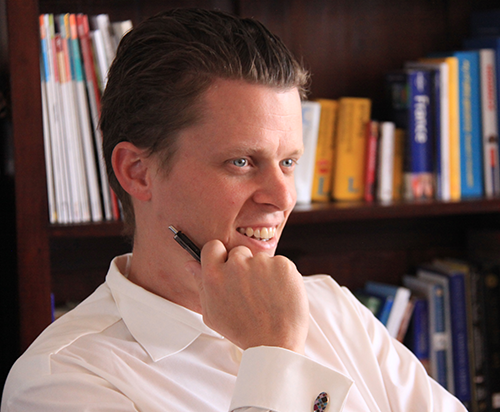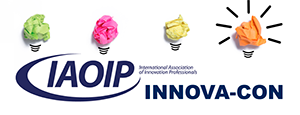Recently a colleague of mine faced a crisis. Their company had decided they weren’t innovative enough but they had no idea how to solve the creativity and execution problem. So the company hired one consultant after the other to help them solve their “innovation problem”. They went through change management processes to startup approaches to innovation but in the end it simply seemed that after all their experiments, management still believed the company was not innovative enough.
A scientific approach to innovation is the key and that’s what conferences like Innova-Con 4 are all about.
After this ordeal, I met my colleague and he uttered something to me I think everyone in every company looking to become more innovative has thought: “I’ve design-led my way through more lean startup failures that I think the most innovative thing we’ve done is to learn how to innovatively fail!”. So what can we do?
During the last fifty years we have seen a plethora of innovation models for all types of purposes. Everything from Doblin’s Ten Types of Innovation to Ries’ Lean Startup model to the latest trends in Design Led Innovation. It seems every week someone comes up with a new ad hoc model for innovation and tries to sell it to the world. So a major challenge has been to sort through these different models and this has led to highly capable groups around the world to establish standards and evidence around the effectiveness of different approaches to innovation: and their work is starting to bear fruit.
Out of this desire, new global organisations promoting this scientific agenda have arisen and they have begun spreading their message at many global events. One such event which embraces a scientific approach to innovation is Innova-Con 4 taking place in Washington D.C. this year (2017) from the 29th to the 31st of March. It is the celebration of creating a scientific, repeatable approach to mastering all types of innovation problems.
To do so, the new breed of science inspired innovation organisations create a body of knowledge based on best practices and then go and look for evidence based around such best practices to make sure that recommendations are grounded in facts and not opinions.
For my colleague, this was exactly the type of approach he needed: a scientific one. It is one that he can point to as having an empirical and theoretical basis for success and one which is auditable and can be repeated again and again with the same results and without resorting to ad hoc hand waving. With such tools he has an authority to point to when any questions are asked around why he makes the choices he does and he knows that his choices will be based on sound science.
Innovation is difficult and we need all the help we can get to improve its success rate. It is scientific approaches like the ones that Innova-Con 4 highlights that we need more of and hopefully this conference will inspire more of it.
By Evan Shellshear
About the author
 Co-Founder and director of AMFORCE, CEO of Simultek, Evan Shellshear has extensive international experiences in delivering high quality applied research results and innovation. He has delivered technical solutions to large multinationals around the globe. He is currently based in Australia.
Co-Founder and director of AMFORCE, CEO of Simultek, Evan Shellshear has extensive international experiences in delivering high quality applied research results and innovation. He has delivered technical solutions to large multinationals around the globe. He is currently based in Australia.
You can reach Evan on @eshellshear and read more of his articles here >
International Association of Innovation Professionals
 INNOVA-CON is working to bring its members an opportunity to meet in person and connect with luminaries in the innovation profession. Content focuses on how to use strategies and methods of innovation to create value in applied and theoretical innovation science. IAOIP is a professional membership organization dedicated to the creation of a comprehensive, independent innovation certification, providing members with the knowledge, skills, and opportunities to deliver real change in their industry or field. We are over 900 members strong in 44 countries.
INNOVA-CON is working to bring its members an opportunity to meet in person and connect with luminaries in the innovation profession. Content focuses on how to use strategies and methods of innovation to create value in applied and theoretical innovation science. IAOIP is a professional membership organization dedicated to the creation of a comprehensive, independent innovation certification, providing members with the knowledge, skills, and opportunities to deliver real change in their industry or field. We are over 900 members strong in 44 countries.







